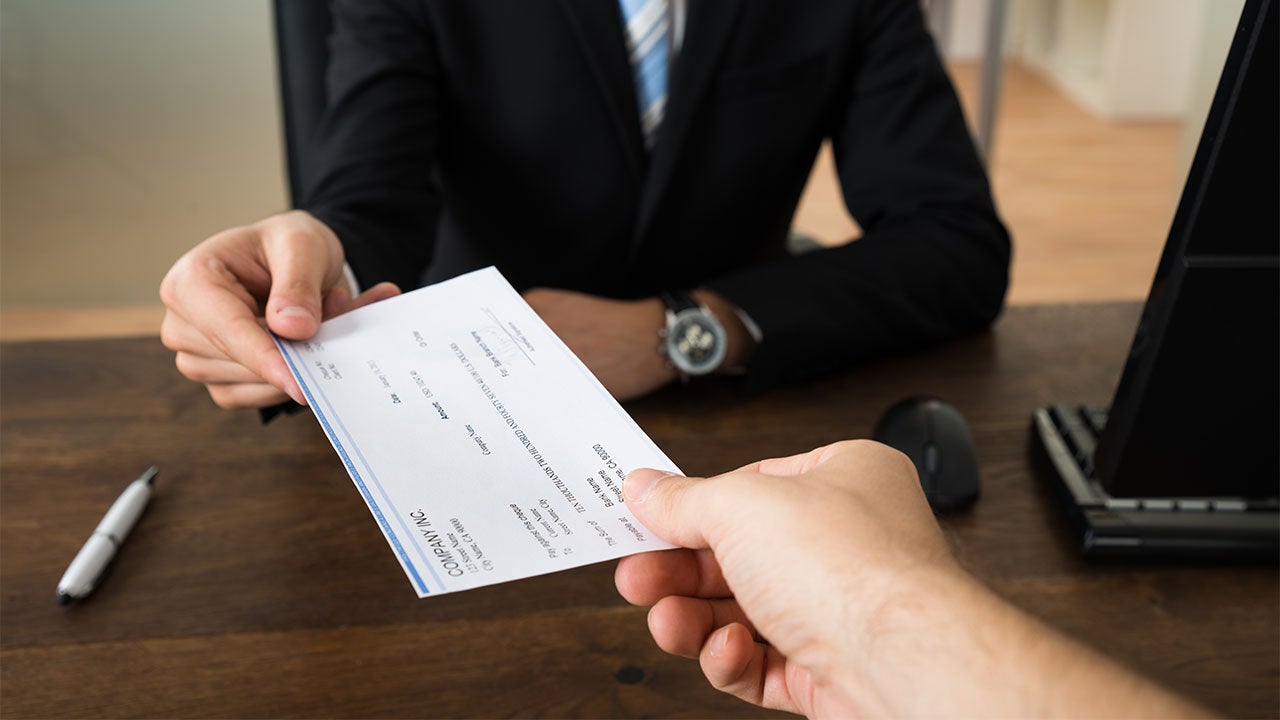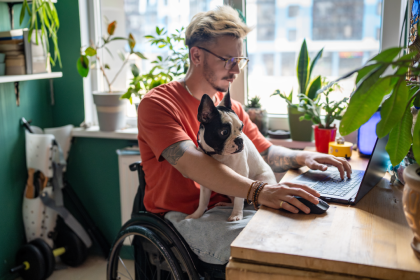Key takeaways
- A cashier’s check is a check that is issued by a bank and often used when making a large purchase, such as a car or down payment on a home.
- You can purchase a cashier’s check for around $10 to $15 at your bank or credit union.
- While typically safe, consumers should still be aware of scams involving cashier’s checks.
A cashier’s check, also known as an official bank check, is a payment instrument issued by a bank or credit union to a third party, usually on behalf of a bank customer who pays the bank the face value of the check.
It’s important to know when to use a cashier’s check, how and where to get a cashier’s check and if these types of checks are safe.
Cashier’s check definition
A cashier’s check is a check that is issued and guaranteed by a bank and drawn from the bank’s own funds.
In a major transaction, such as buying a boat or a home, a cashier’s check assures the payee that the funds are there because the check is backed by the bank’s funds, so there is no risk of the check bouncing.
The buyer of the cashier’s check pays the bank upfront for the full amount of the check. The bank deposits those funds and then issues the cashier’s check to the designated payee for the amount requested.
The check cannot be cashed by anyone but the designated payee and settlement is usually quicker than with a personal check.
When to use a cashier’s check
Use a cashier’s check when you need to make a large payment and a personal check or credit card isn’t acceptable and paying with cash isn’t safe or practical.
A cashier’s check is a safe, efficient payment method when a large sum of money is required. Although a cashier’s check is best for large purchases, this type of check can be written for any amount.
Some transactions will require a cashier’s check for payment. You might need a cashier’s check to make a security deposit on an apartment, for example, or to cover the down payment on a new car.
Consumers often use cashier’s checks to pay a merchant or vendor that requires cash and won’t accept personal checks. Cashier’s checks also are used in cash trades that must settle quickly, such as with real estate and brokerage transactions.
A merchant or payee who wants to avoid the risk of a counterfeit check or a check bouncing may require a cashier’s check for its security and guarantees. Generally, a bank will honor an authentic cashier’s check.
Where to get a cashier’s check
You can purchase cashier’s checks at bank or credit union branch offices. Some financial institutions also make them available on their websites or by telephone. A bank might issue cashier’s checks to non-customers, but most probably will only issue them to customers.
You may also be able to get a cashier’s check online at your bank or credit union, as well.
How to get a cashier’s check
To get a cashier’s check, have a government-issued photo ID with you, such as a driver’s license. Have enough cash on hand or funds in your account to pay the bank the full amount of the check. You also must supply the name of the payee, because banks cannot issue blank cashier’s checks. Be sure to keep the receipt for the check.
How much does a cashier’s check cost?
Cashier’s checks at traditional banks typically cost around $10 to $15. Some banks waive the fee for certain account holders. If you need a cashier’s check on a regular basis, you should find a bank or credit union that offers them for free to account holders. For example, Ally Bank offers cashier’s checks at no charge.
Are cashier’s checks safe?
Cashier’s checks are considered safe forms of transferring money because they’re issued by a financial institution and are paid out of the institution’s funds, not customer accounts.
“Cashier’s checks are generally pretty secure because they’re backed by the bank, not just an individual’s account,” says Hanna Horvath, certified financial planner and Managing Editor at Bankrate. “The bank will set aside the money upfront, which is why they’re often used for big purchases like homes or cars.”
But Horvath warns these checks are not scam-proof. “A classic cashier’s check scam is where someone sends a fake cashier’s check for more than the amount, then asks for the difference back — once the check bounces, your money is gone,” she says.
To make sure you’re staying safe, Horvath recommends getting your cashier’s check directly from your bank. “And remember, just because it’s a cashier’s check doesn’t mean the funds are available immediately — banks still need time to verify they’re legit.”
Be careful when accepting a cashier’s check from someone you don’t know. Confirm with the bank or credit union that the check is real by calling the direct line to the bank (not one listed on the check, as this could be a fake number). Verify the check has cleared, and save documents associated with the check.
Cashier’s checks vs. money orders vs. certified checks
There are a couple of good alternatives to cashier’s checks, which are drawn against the bank’s funds.
Money orders: If you need to make a payment of less than $1,000, money orders are a good option. They’re easier to obtain than cashier’s checks because not only do banks issue them, but they’re also sold at the post office and at many grocery and convenience stores, check-cashing outlets and gas stations.
You don’t need a bank account to get a money order from the U.S. Postal Service, and a money order is generally much cheaper than a cashier’s check. A USPS money order is up to $3.40, and a bank money order is typically around $5.
They’re not as secure as a bank check, but they don’t bounce because the buyer must pay the vendor upfront for the full amount of the money order, plus the vendor’s fee.
Certified check: As the name suggests, it’s a personal check that has been certified by the bank. The bank, for example, certifies that the funds for the amount the check is written for are, indeed, available and are earmarked for the designated payee. The bank also verifies that the payer’s signature is genuine.
Bottom line
Cashier’s checks are a safe, reliable way to make payments of large amounts and in transactions where cash or personal checks are not accepted.
Read the full article here





